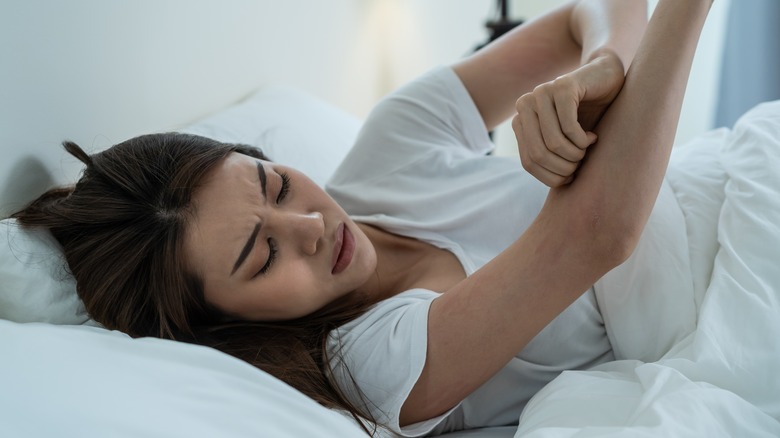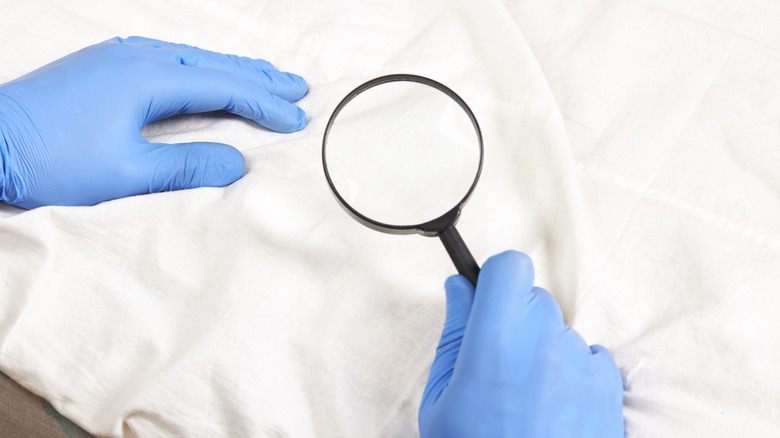Why Your Body Gets Itchy At Night
From ruminating thoughts to the urge to pee, why is it that something always seems to get in the way as soon as it comes time to settle down for the night? If you've ever curled up under the covers, only to then feel the tickle of an unwelcome itch one place after the next, you're one of many. In fact, this common nighttime condition is known as nocturnal pruritus (via Water's Edge Dermatology).
Often occurring right as we start to close our eyes for the night, nighttime itchiness can be attributed to a number of causes. Dermatologist Dr. Zain Husain explains, telling Shape, "It's common for people with dermatological conditions, such as psoriasis and eczema; however, many people experience it without any coexisting skin disorders."
Allergies, stress, hormonal changes, mental health disorders, hyperthyroidism, restless legs syndrome, and certain blood disorders can also contribute to nocturnal pruritus (per Verywell Health). Older adults may find they are particularly susceptible to nighttime itching, as dry skin, neural degeneration, and reduced immunity can enhance the discomfort of already itchy skin.
So while a health condition may be one possible underlying cause for this phenomenon, there are other physiological factors, as well as external factors, that can also prompt a bout of itchy skin at bedtime.
Nighttime itching isn't always caused by a health condition
Skin that starts itching at night may simply be due to the release of heat that occurs as part of our body's natural circadian rhythm, notes Water's Edge Dermatology. Blood flow is boosted to the skin, and skin becomes drier due to a loss of moisture, all of which can make us more prone to itching.
However, if your itching doesn't seem to be tied to a health condition, age, or the body's natural circadian rhythm, you may be itchy for another reason altogether: pests. Per Water's Edge Dermatology, unwelcome mattress inhabitants such as bed bugs, lice, or mites can irritate the skin, prompting us to scratch.
On the other hand, if you feel that your skin isn't nearly as itchy during the day, it may just be because your focus was directed elsewhere, points out Water's Edge Dermatology. With so many things pulling our attention during waking hours, we're able to detect bodily sensations more easily when lying still at night. In other words, you're more likely to notice an itch come bedtime when your mind isn't preoccupied with other tasks.
Water's Edge Dermatology suggests seeing a doctor if your itching affects the entire body, interferes with your sleep, or persists for more than two weeks and doesn't respond to home remedies. You'll also want to see a doctor if your itching is accompanied by tiredness, weight loss, or a fever.


